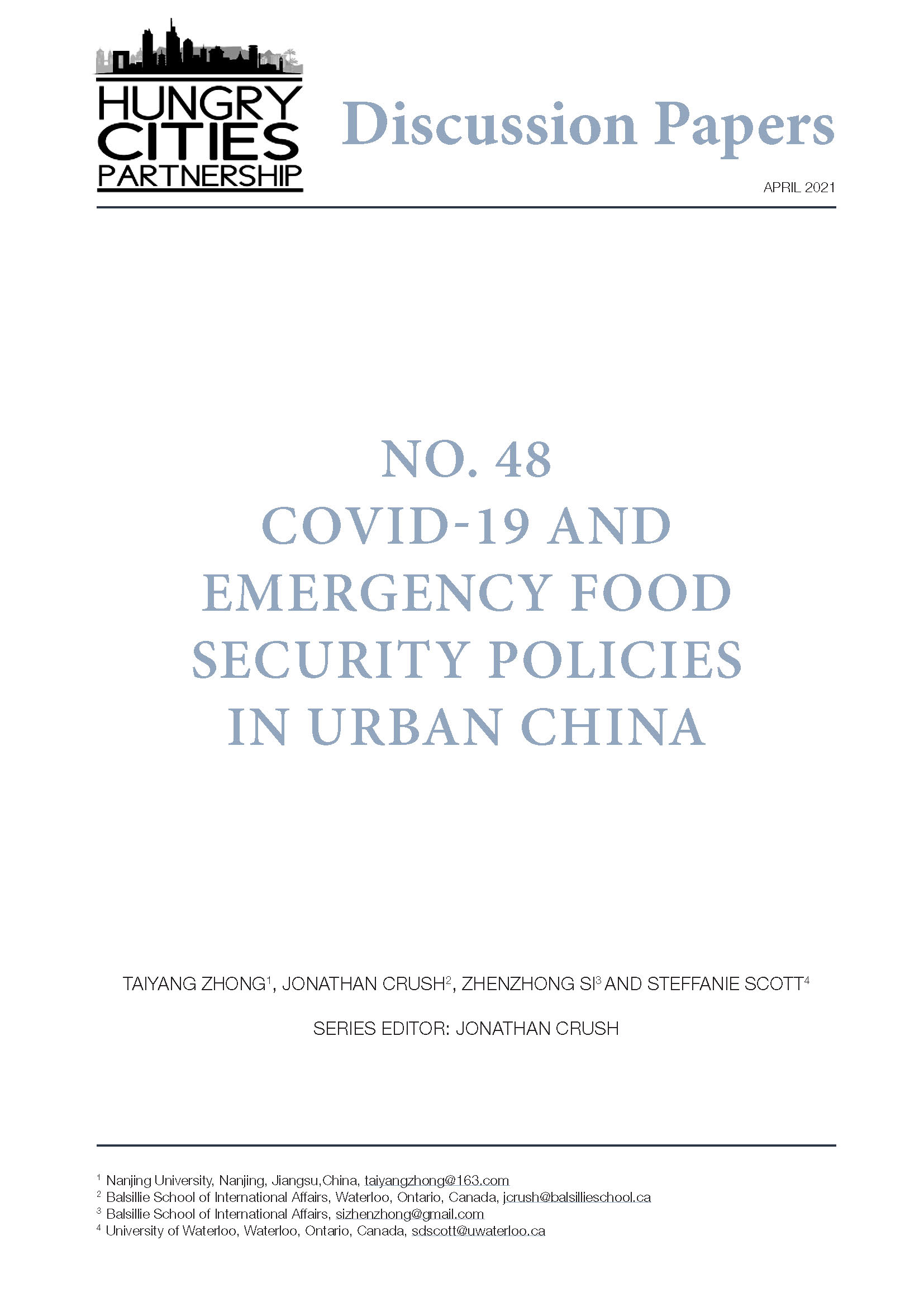The COVID-19 pandemic has continued to spread worldwide, threatening people’s health as well as their food security. Yet, empirical research investigating its impacts on food security is scant. Limited attention has been paid to the local food security management implications of an infectious disease pandemic. To narrow these gaps, this study investigated the development of emergency food policies in Wuhan and Nanjing in China and households’ food security, based on a combination of online surveys of household food security and policy document analysis. This study shows that COVID-19 and associated quarantine measures caused many households to experience food insecurity. There was also a notable increase in the number of severely food insecure households. We argue that the existing food contingency plans put in place were not adequate to handle the food security emergency caused by COVID-19. Although policies developed prior to the outbreak of COVID-19 to ensure food availability, utilization and containing food price had worked well, policies ensuring physical access to food outlets were far from adequate. The major lesson learned is that a more resilient system of food distribution is needed, including a relatively closed and independent home delivery system. Moreover, it is necessary to integrate grassroot organization such as residential community committee and property management organizations, and incorporate spontaneous volunteering management, in contingency food planning.

